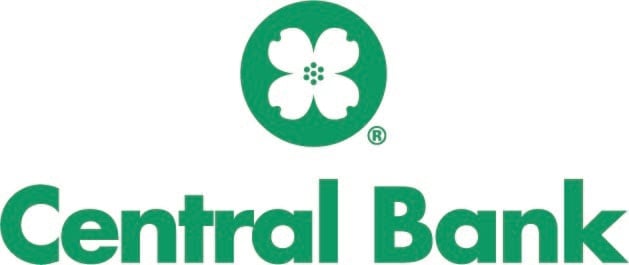Compare 15-year Mortgage Rates | Friday, February 27, 2026
Rates are current as of February 27, 2026 4:00 PM EST
APR 5.82%
-0.03% 1wAPR 5.34%
-0.08% 1wAPR 6.29%
-0.02% 1wShow details
The Nerdy headline
Tomo, established in 2020, is an online-only lender with a focus on digital efficiency and purchase loans. We’re impressed with its customizable mortgage rate tool. Average rates are on the low side, too. However, you won’t find home equity products. Mortgages are available in 34 states and counting.
Home loans overall
NerdWallet rating5.0
- Online rate tool is user-friendly and customizable.
- Average interest rates are on the low side, according to the latest federal data.
- Accepts borrowers with credit scores below 600.
- Mortgages not available in all states.
- No renovation or home equity loans.
- No mobile app.
Show details
The Nerdy headline
New American Funding offers a large menu of loan products, as well as programs like first-time home buyer assistance, but personalized mortgage rates aren't available on its website.
Home loans overall
NerdWallet rating4.5
- Offers a wide variety of purchase and refinance mortgages, as well as unique buyer assistance programs.
- Its home equity line of credit can be used for a primary residence or second home.
- Average origination fees are on the high side, according to the latest federal data.
- Personalized mortgage rates are not available on the website without providing contact information.
Show details
The Nerdy headline
Simplist is an online marketplace of mortgage lenders; human guidance is optional. You’ll make payments to a loan servicer, not to Simplist. Loans are not available in every state.
Home loans overall
NerdWallet rating
4.5
- Loan origination process can be completed online.
- Offers government-backed FHA and VA loans.
- Offers module that compares mortgage rates among other lenders.
- Offers loans in many states and Washington, D.C., but not nationwide.
- Does not offer home equity loans or lines of credit.

NMLS#1880338
APR
5.11%
APR
5.11%
Interest rate
4.99%
Est. mo. payment
$3,162/mo
Total fees
$3,200
Next Door Lending is a wholly-owned subsidiary of NerdWallet
Show details
The Nerdy headline
Next Door Lending, a mortgage broker, offers expert assistance shopping for and closing a loan, as well as specialty loans at competitive rates. Mortgages are not available in every state.
- Offers a variety of loan types, including first-time buyer programs and loans for self-employed borrowers.
- Real-time rate quotes available while working with a broker.
- Responsive customer service.
- Competitive pricing often available, especially for non-traditional borrowers.
- Does not publish interest rates online.
- No mortgage mobile app.
- Loans are not available in every state.
Show details
The Nerdy headline
First Federal Bank stands out for its exceptionally low interest rates and its emphasis on government loans. Most likely to appeal to borrowers shopping for low rates and fees.
Home loans overall
NerdWallet rating5.0
- Strong experience in FHA and VA lending.
- Average mortgage rates are on the low side, according to the latest federal data.
- Minimum credit score requirement of 580 for some loans, which is lower than some competitors.
- No mobile app.
- Home equity lending is not a priority.
- Does not offer renovation loans, but does offer construction loans.
Show details
The Nerdy headline
Home loans overall
NerdWallet rating
4.5
- Offers a variety of mortgage options, including jumbo loans, and FHA and VA loans.
- Offers home equity loans and lines of credit.
- Displays customized rates, with fee estimates, without requiring contact information.
- Doesn’t offer mortgages in all 50 states.
- Home renovation loans are not available.
Show details
The Nerdy headline
Midwest-rooted Central Bank offers an online application, which you can track via mobile app. But you’ll have to contact the bank for mortgage rates.
Home loans overall
NerdWallet rating
4.0
- Among the best when it comes to online convenience.
- Offers a full selection of mortgage types and products, including jumbo, home equity, and government loans.
- Claims to offer preapproval within 24 hours of loan application.
- You'll have to complete a loan application to see mortgage interest rates.
- Bank branch locations limited to the Midwest.
- Does not offer home equity lines of credit.
Show details
The Nerdy headline
NBKC stands out for its attractive interest rates and fees, and is primarily an online lender — though its app does not have mortgage features and chat support is not geared toward mortgage borrowers.
Home loans overall
NerdWallet rating4.5
- Competitive interest rates and fees.
- Offers most common loan types, as well as a handful of specialty loans.
- Payouts are available to borrowers whose loans don’t close on time.
- Customer service is only accessible over the phone for many mortgage customers.
- Does not offer renovation loans.
- Home equity products are not currently a lending priority.
See more options
About these rates: The lenders whose rates appear on this table are NerdWallet's advertising partners. NerdWallet strives to keep its information accurate and up to date. This information may be different than what you see when you visit a lender's site. The terms advertised here are not offers and do not bind any lender. The rates shown here are retrieved via the Mortech rate engine and are subject to change. These rates do not include taxes, fees, and insurance. Your actual rate and loan terms will be determined by the partner's assessment of your creditworthiness and other factors. Any potential savings figures are estimates based on the information provided by you and our advertising partners.
Explore historical 15-year rate trends
See how rates have changed over time to understand past patterns and economic fluctuations

Historical timeline
Loan purpose
Loan type
National average 5.34%
Today's average mortgage rates
| Product | Interest rate | APR |
|---|---|---|
| 30-year Fixed | 5.81% | 5.82% |
| 30-year Fixed FHA | 6.12% | 6.86% |
| 30-year Fixed VA | 5.41% | 5.53% |
| 20-year Fixed | 5.76% | 5.77% |
| 15-year Fixed | 5.32% | 5.34% |
| 10-year Fixed | 5.37% | 5.39% |
| 3-year ARM | 8.19% | 7.46% |
| 5-year ARM | 5.85% | 6.29% |
| 7-year ARM | 5.88% | 6.21% |
| 10-year ARM | 5.81% | 5.82% |
Accurate as of 02/27/2026.
Data source: ©Zillow, Inc. 2025. Use is subject to the Terms of Use
Today's 15-year mortgage rates | Friday, February 27, 2026
15-year Mortgage: Should You Refinance? What to Consider
A 15-year mortgage saves money in the long run because you pay less in total interest than on a 30-year loan, whether buying a home or refinancing. Find and compare current 15-year mortgage rates from lenders in your area.



Robin Rothstein
Chris Jennings
What is a 15-year fixed-rate mortgage?
How to find current 15-year mortgage rates
How your 15-year mortgage rate is set
15-year mortgage rates vary by lender
15-year fixed mortgage: Pros and cons
Pros
- Lower rates: Average interest rates are lower for 15-year mortgages than for home loans with longer terms.
- Interest savings: You save money with a 15-year mortgage because you pay interest for fewer years.
- Accelerate equity: You build home equity faster with a 15-year mortgage.
Cons
- Higher payments: Monthly payments for a 15-year mortgage are higher than for a mortgage with a 30-year term since you’re repaying the loan in half the time.
- Reduced purchasing power: The higher monthly payments on a 15-year mortgage mean lenders may approve you for a smaller loan, potentially limiting the amount of home you can afford compared with a 20- or 30-year loan.
- Limits financial flexibility: Because of the higher monthly payment, you’ll have less money available for other investments, such as retirement accounts.
Is it worth refinancing to a 15-year mortgage?
Learn more about fixed-rate loans:
More mortgage tools and resources
Latest mortgage news and analysis
View rates by loan type or state
Get even more specific with rates personalized to your situation







